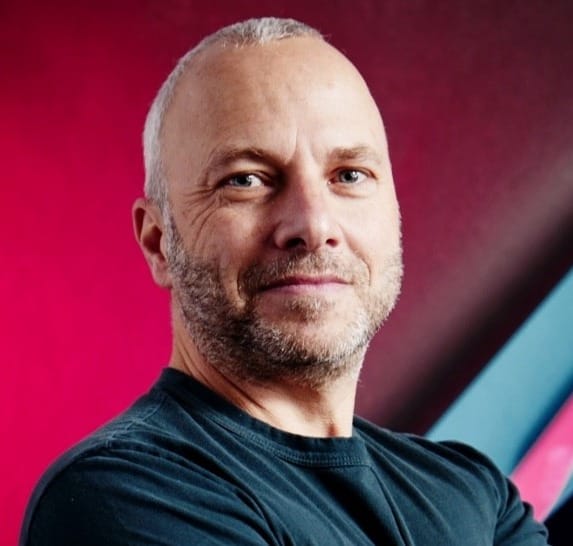
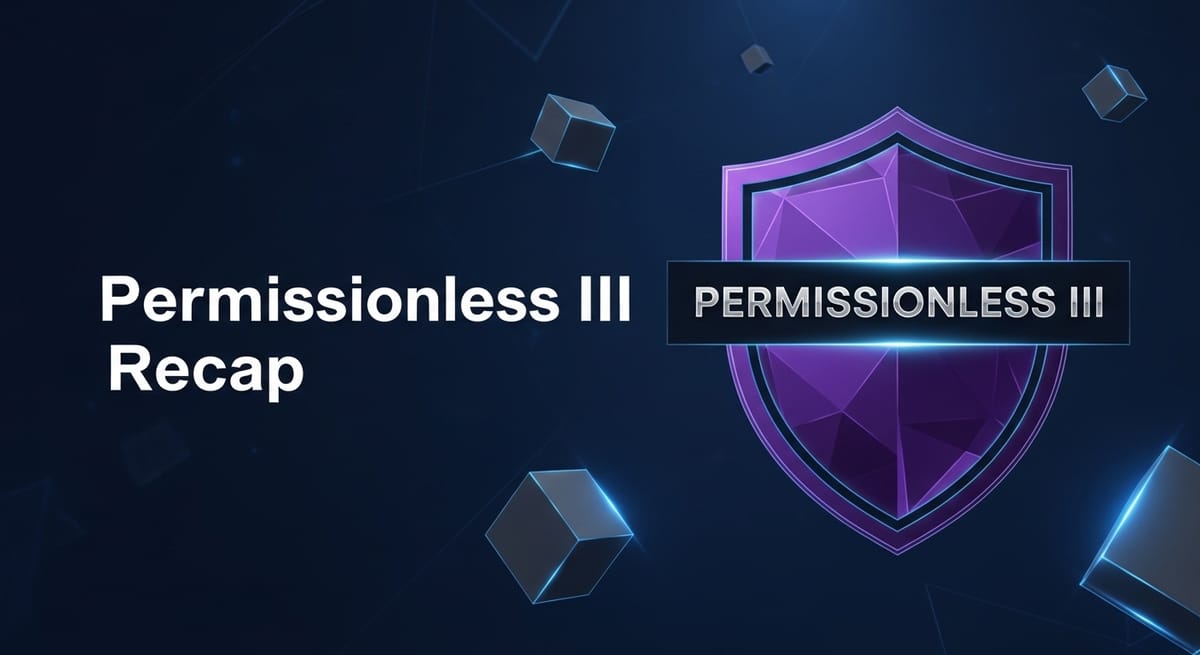
View the Permissionless III Recap
Today at Permissionless III, we have the pleasure of speaking with Micha Anthenor Benoliel, a visionary at the forefront of technological innovation. Micha’s journey began at just eight years old, when he taught himself how to code a flight simulator in Basic on a Zenith PC. His passion for technology only grew from there, leading him to create games for iconic platforms like the Texas Instruments TI 99 4A, ATARI 512ST, and Amiga 500.
With over two decades of experience, Micha has been a trailblazer in disruptive communications technologies. He worked with Skype and enabled the launch of SkypeIn and SkypeOut, it was instrumental in scaling the platform's monetization, setting the stage for its global success. In 2011, he co-founded Open Garden, which revolutionized mobile networking with its groundbreaking mesh networking technology, culminating in the worldwide sensation, FireChat.
Seven years ago, Micha embarked on the Nodle journey, where he applies his expertise to build a decentralized digital trust network designed for the era of generative AI. Under his leadership, Nodle has amassed over a million users and a growing enterprise customer base, including industry giants like Vivendi Group. Micha's relentless vision continues to inspire innovations that enhance communication, trust, and authenticity in the digital world.
Join us as we explore Micha's insights into the evolving landscape of technology and his journey toward building a more connected and trustworthy digital future.
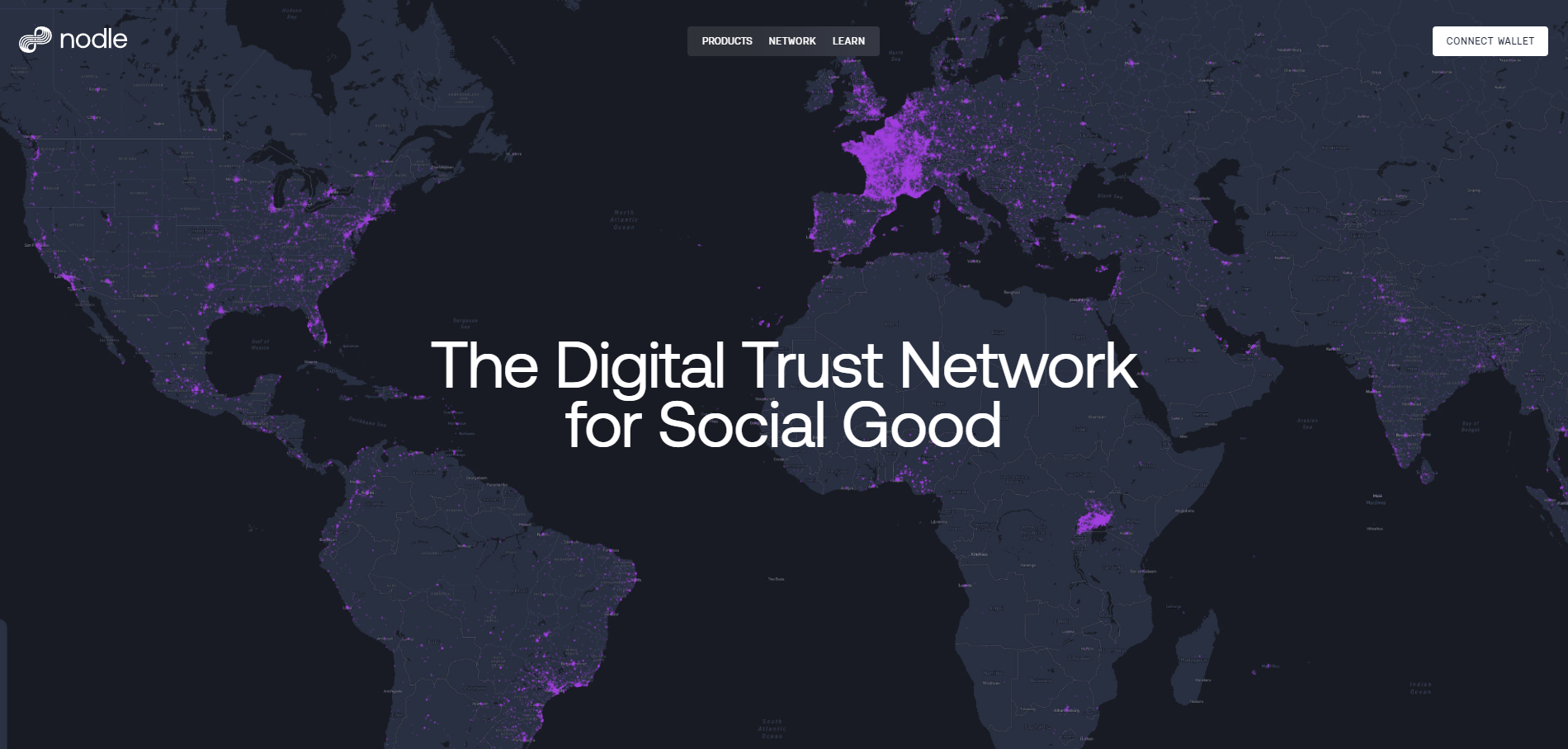
James (CryptoBit Mag): Can you introduce yourself and tell us about your company?
Micha Benoliel: Absolutely. I'm the co-founder and CEO of Nodle, which is a decentralized network on smartphones. We've been around for seven years and we're actually the largest decentralized network by number of contributing devices. We have about a million people with an account.
We recently launched a new application called the Click app. It's very timely in an era where AI is generating so much content online. Click enables you to authenticate content you create, like photos or videos, and share them on any social platform, like with a YouTube link, while keeping ownership of the content you share.
James (CryptoBit Mag): How does that work? How is that verified exactly with Nodle?
Micha: To have a good source of authenticity for the content, you need three ingredients:
- Proof of location: We leverage our network of Nodle smartphones, which acts like a network of digital witnesses.
- Provenance: We support an industry standard called C2PA, developed by the Linux Foundation and Adobe. All photos and videos taken with the Click camera app organize the metadata according to the C2PA protocol.
- Proof of immutability: For this, we use blockchain. When you take a photo or video with Click, it automatically organizes the metadata into the file, signs it, sends it to IPFS (the decentralized internet), and makes a record on-chain with a link to the media file. The on-chain record also contains a hash of the media file.
This means that at any time in the future, if you come across that photo or video, you can verify if it's the original or if it has been modified.
James (CryptoBit Mag): If someone's stealing content or using it inappropriately, how would users report that?
Micha: Using an explorer available on the Click app website, you can drag and drop any photo or video and see if it's the original or not. It's a big problem when you consider AI-generated content. More than 15 billion images were generated by AI in a year and a half, which is equivalent to 150 years of photography in terms of volume.
James (CryptoBit Mag): And AI is getting so good that some of these pictures look so real. It's so early for this technology. What do you think it's going to be like in a year or two?
Micha: People need to develop the habit of verifying everything they watch online. It's a matter of education and will take some time. But blockchain brings another dimension to it. You can keep ownership of the content you push on any social or messaging platform, and people can reward you for that content or pay for it. Eventually, large language models could pay you if they use the content you produce, since you have verifiable ownership through the blockchain.
James (CryptoBit Mag): Are there any new features you plan on bringing out in the future?
Micha: We actually released a new version between yesterday and today on iOS and Android. You can now easily share your content on other social networks like Instagram Stories or Telegram. We also shipped a feature where you can choose to use approximate location instead of precise location to preserve your privacy. The app is completely free, and all of this happens at no cost to the user.
James (CryptoBit Mag): Does this involve any transaction fees?
Micha: We cover the transaction fees for the user. In the future, when we introduce identity features, people will have to pay to attach their identity. This will also enable them to import or drag-and-drop any kind of file they want to sign on the web interface. So it's basically a freemium model.
[Micha demonstrates the app by taking a photo with the interviewer]
Micha: So now I've taken this photo, and you can see in the metadata it has all the time, location, lens characteristics, and the key that's going to sign the photo. Now it's verifying it's me, signing the file, pushing it to IPFS, and making the record on-chain. Now I can share it anywhere.
Even if you don't have the app, when I share this, it creates a preview. You can see the photo, and you can go online to verify the authenticity of the file.
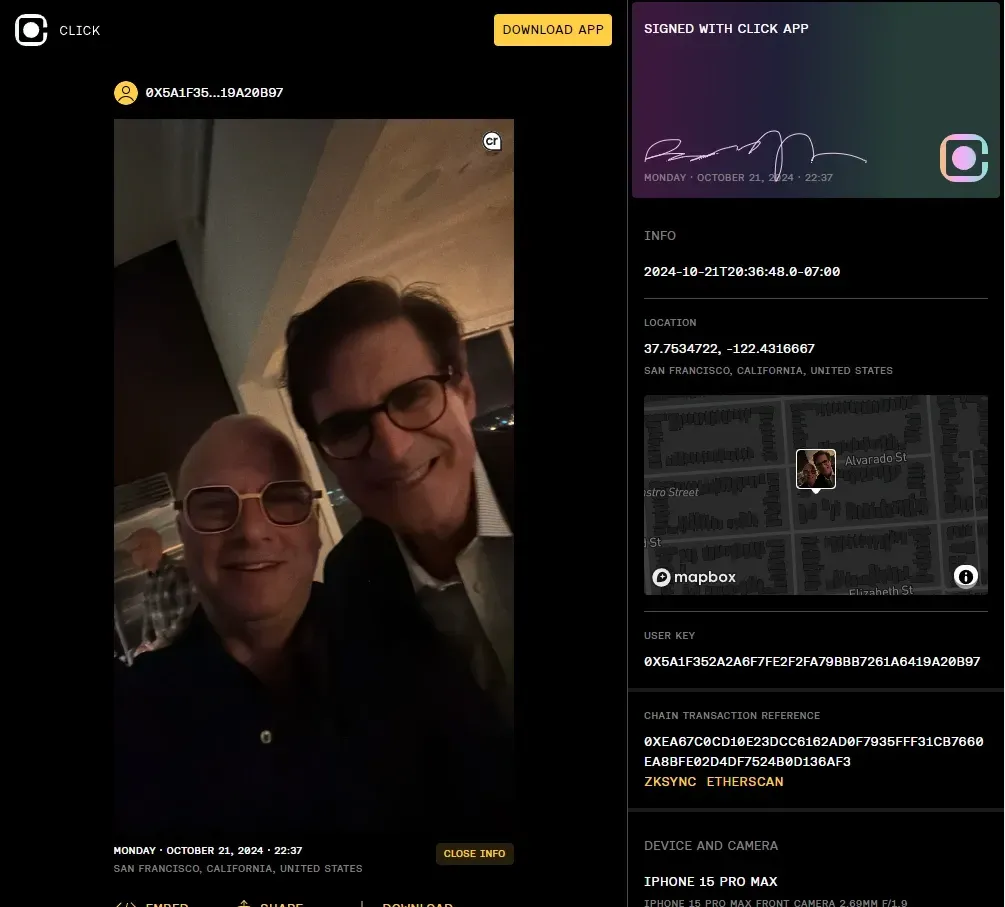
James (CryptoBit Mag): That's really cool. Do you have any browser plugins for this yet?
Micha: We have an explorer online at clickapp.com where you can verify files. We don't have a browser plugin yet, but we've made it easy to share on social media platforms. For example, I created a thread about the event yesterday with photos, and you can see the "authentic photo captured on" tag. Following the link takes you directly to the web proxy that displays the photo and the proof.
James (CryptoBit Mag): How many users do you have so far?
Micha: We have approximately 30,000 people who have installed the app. We launched in public beta during South by Southwest. We're also planning to start a mission in the wallet of the network for people to install the app, shoot photos, and get rewarded. It'll be a more gamified experience to help people understand what can be done and create the habit of using it.
James (CryptoBit Mag): That's great. Is there anything else you want to tell people about the project?
Micha: I think it's very important that people develop the habit of owning their content and sharing authenticated content online. Otherwise, we might end up in a matrix-like situation faster than we think.
We're trying to create a trend of what we call "deep reals" as opposed to deep fakes. The idea is to assume everything online is probably fake, so when you post, you want to prove the realness of what you're sharing.
This is also big for creators. Once we have identity features, influencers could sign their videos with this. When they share on platforms like YouTube, they can add a link to show users it's really coming from them. This could help combat issues like video hacking, where people replace faces in videos and repost them to make money off someone else's content.
James (CryptoBit Mag): Where can people find you and the project online?
Micha: I'm on Twitter. My username is @anthenor (A-N-T-H-E-N-O-R). You can also easily find me by googling my name, Micha Benoliel. We have a Telegram channel for the Nodle network with close to 20,000 people in the group.
James (CryptoBit Mag): What's your main take from this conference?
Micha: It was a good opportunity to meet peers and have time for discussion, which I think is important. I watched the panels yesterday, and it's good to see that there are strong believers in the ethos of crypto. I hope the gambling aspect and meme coins will eventually go away, as they don't help consolidate a better image for this industry.
I believe that as people understand blockchain is a natural evolution of the Internet itself, where you can have access to content, payment, and identity on the same layer, we'll start to see a shift. We'll see better products and solutions, and hopefully, we'll start to see faster adoption.
James (CryptoBit Mag): I agree. I've seen a huge change over the last couple of years. From the early years of 2012-2013 to now, it's completely different, and in a good way.
Micha: Exactly. Thank you for your time, James.
James (CryptoBit Mag): Thank you, Micha. We'll keep in touch.
You can follow Nodle through their Website, Discord, Telegram, X.com, Linkedin, and Youtube.
Download the App: Apple - Android
Unlocking the Power of Your Smartphone with Nodle
Imagine transforming your everyday smartphone into a beacon of innovation and earning potential. That's precisely what Nodle offers, and today, let's dive into how this platform could revolutionize the way we think about our mobile devices.
Exploring the Innovative Features of Nodle
In the rapidly evolving world of blockchain and IoT (Internet of Things), Nodle stands out with its unique approach to connecting the physical world with the digital. Here's a dive into what makes Nodle an intriguing platform for tech enthusiasts and casual users alike.
1. Decentralized Wireless Network
Nodle leverages smartphones as nodes to create a decentralized wireless network, known as the Nodle Network. This innovative use of technology allows smartphones to interact with IoT devices using Bluetooth Low Energy (BLE), effectively turning your phone into a part of a global sensor network. This feature not only democratizes access to IoT connectivity but does so in an energy-efficient manner, minimizing the battery impact on your device.
2. Earning Opportunities with $NODL
One of the most talked-about features on X (the platform formerly known as Twitter) is the ability to earn cryptocurrency. By simply downloading the Nodle app, users can start earning $NODL, Nodle's native token. This passive income opportunity requires only that you keep your Bluetooth and location services enabled, allowing the app to work in the background. It's an effortless way to dip your toes into the world of crypto without any upfront investment.
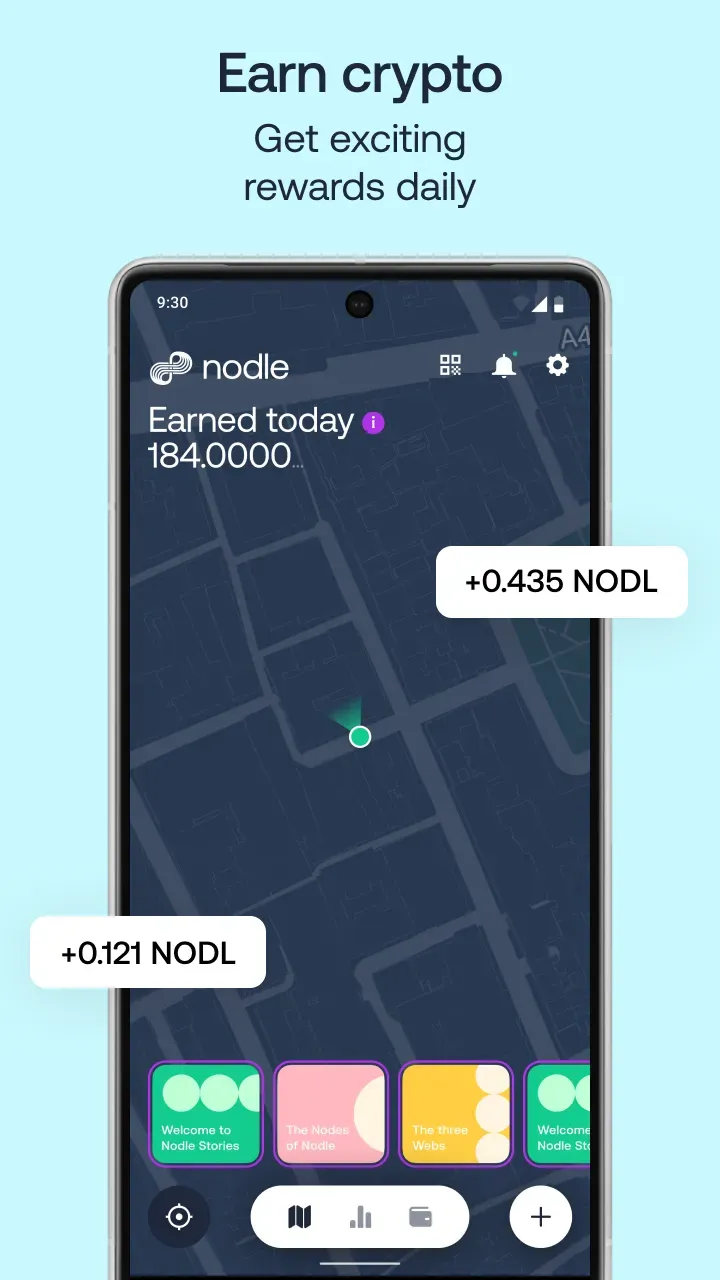
3. Secure and Authenticated Media with Click
Nodle isn't just about connecting devices; it's also about ensuring authenticity in media content. The Click app, part of the Nodle ecosystem, allows users to capture and share media that's automatically authenticated through blockchain technology. This feature ensures that the content you share or consume is genuine, tackling the issue of misinformation in a novel way. For journalists, content creators, or anyone interested in media authenticity, this is a game-changer.
4. Decentralized Physical Infrastructure (DePIN)
Nodle's approach to DePIN is revolutionary. By using everyday smartphones, Nodle builds a network that can support various applications from asset tracking to proving location without the need for expensive, centralized infrastructure. This not only reduces costs but also increases the resilience and reach of the network.
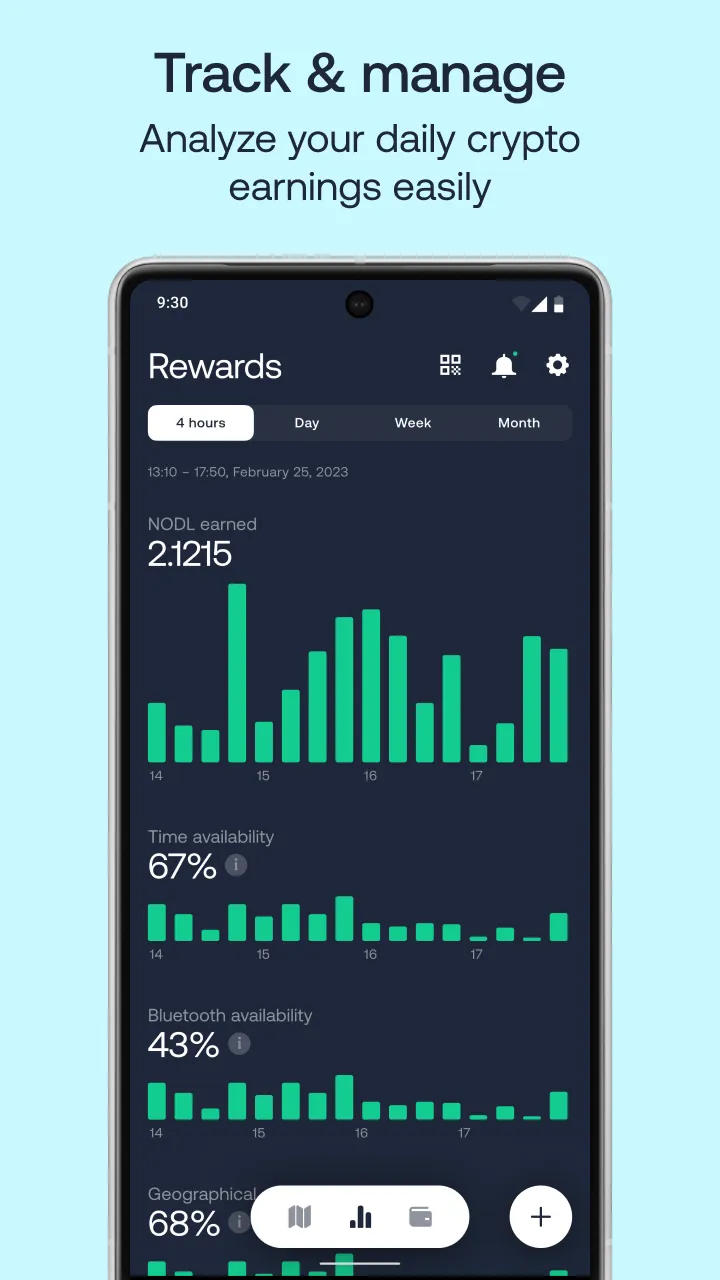
5. An Ecosystem for Developers and Enterprises
For developers and enterprises, Nodle provides tools like ConnectX, an enterprise toolkit for managing Bluetooth devices at scale. This feature opens up a plethora of possibilities for creating location-aware services, asset tracking solutions, and much more, all integrated seamlessly with blockchain for added security and trust.
6. User Privacy and Data Control
Despite its networking capabilities, Nodle emphasizes user privacy. The location data used is solely for network coverage purposes and to locate Bluetooth devices at the request of their owners. This focus on privacy, combined with the security of blockchain, ensures users can participate without compromising their data.
Conclusion
Nodle is not just riding the wave of blockchain and IoT integration; it's actively shaping how we interact with the digital and physical worlds. Whether you're interested in earning passive income through your smartphone, ensuring the authenticity of digital content, or exploring the frontiers of decentralized networks, Nodle offers features that are both innovative and practical. As we move towards an increasingly connected future, platforms like Nodle are paving the way for how we might all participate in, and benefit from, the next generation of internet technologies.
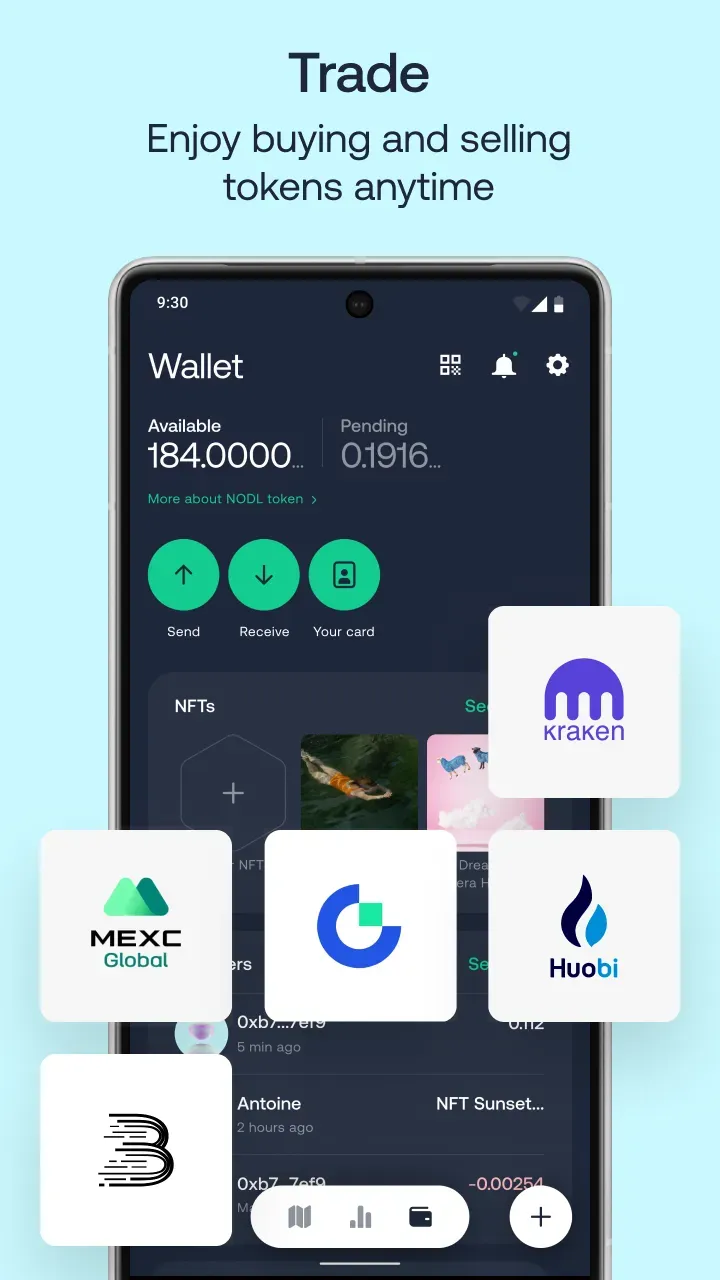
What is the Nodle Network?
The Nodle Network is a decentralized wireless network that uses smartphones as nodes to connect the physical world to blockchain technologies, enabling various applications like IoT connectivity and media authentication.
How can I earn $NODL?
You can earn $NODL by downloading the Nodle app, creating a wallet, and allowing your smartphone to participate in the network by using Bluetooth to connect with IoT devices around you.
What is the Nodle Wallet App?
The Nodle Wallet App is an application that allows users to earn Nodle's cryptocurrency, $NODL, by simply using their smartphone to contribute to the Nodle Network.
Can I use the Nodle Network internationally?
Yes, the Nodle Network is designed to work globally. Users around the world can participate in the network with their smartphones.
What is Click and how does it relate to Nodle?
Click is an app within the Nodle ecosystem that authenticates media content through blockchain technology, ensuring that photos and videos are verified for authenticity.
What are the system requirements for running the Nodle app?
The Nodle app requires a smartphone with Bluetooth Low Energy (BLE) capabilities and permission to access location services to function effectively.
Is there a cost to join the Nodle Network or migrate my $NODL tokens?
Joining the network via the app is free. For token migration to platforms like zkSync, there might be minimal transaction fees, but as of recent updates, migration was free with a minimum transaction amount.
How does Nodle ensure the privacy and security of its users?
Nodle focuses on using location data solely for network purposes and ensures user data privacy through blockchain's inherent security features, although users should always review the latest privacy policy for detailed information.
What is the purpose of the $NODL token?
The $NODL token serves as the utility token of the Nodle Network, used for transactions within the ecosystem, rewarding node operators, and facilitating the network's operations.
Can businesses benefit from the Nodle Network?
Yes, businesses, especially in IoT, asset tracking, or those needing location verification, can leverage the Nodle Network to enhance connectivity, verify data authenticity, or engage in new forms of digital interaction.


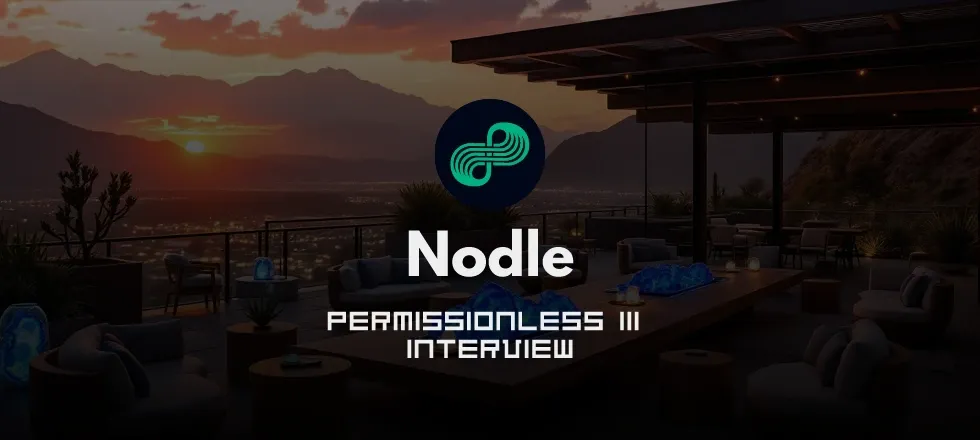
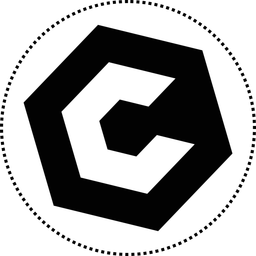



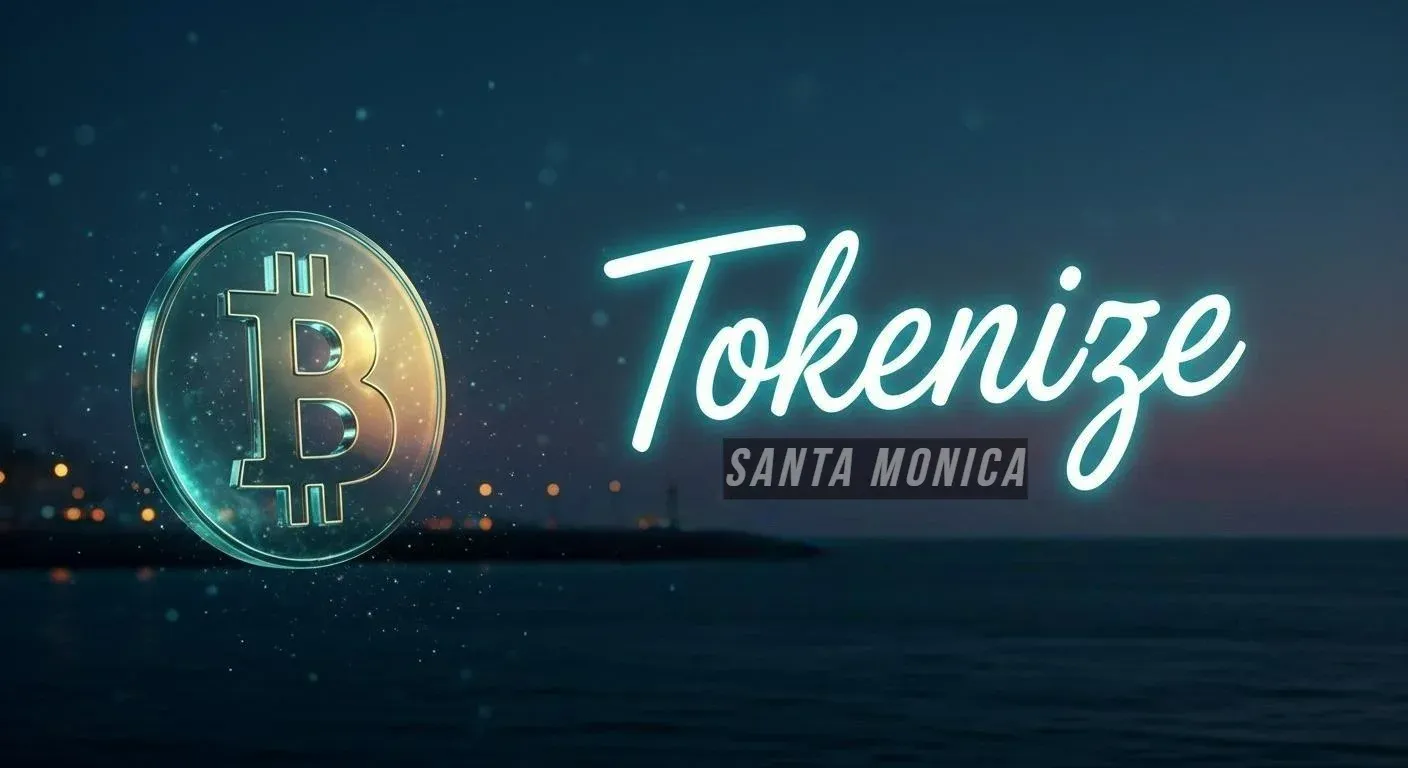
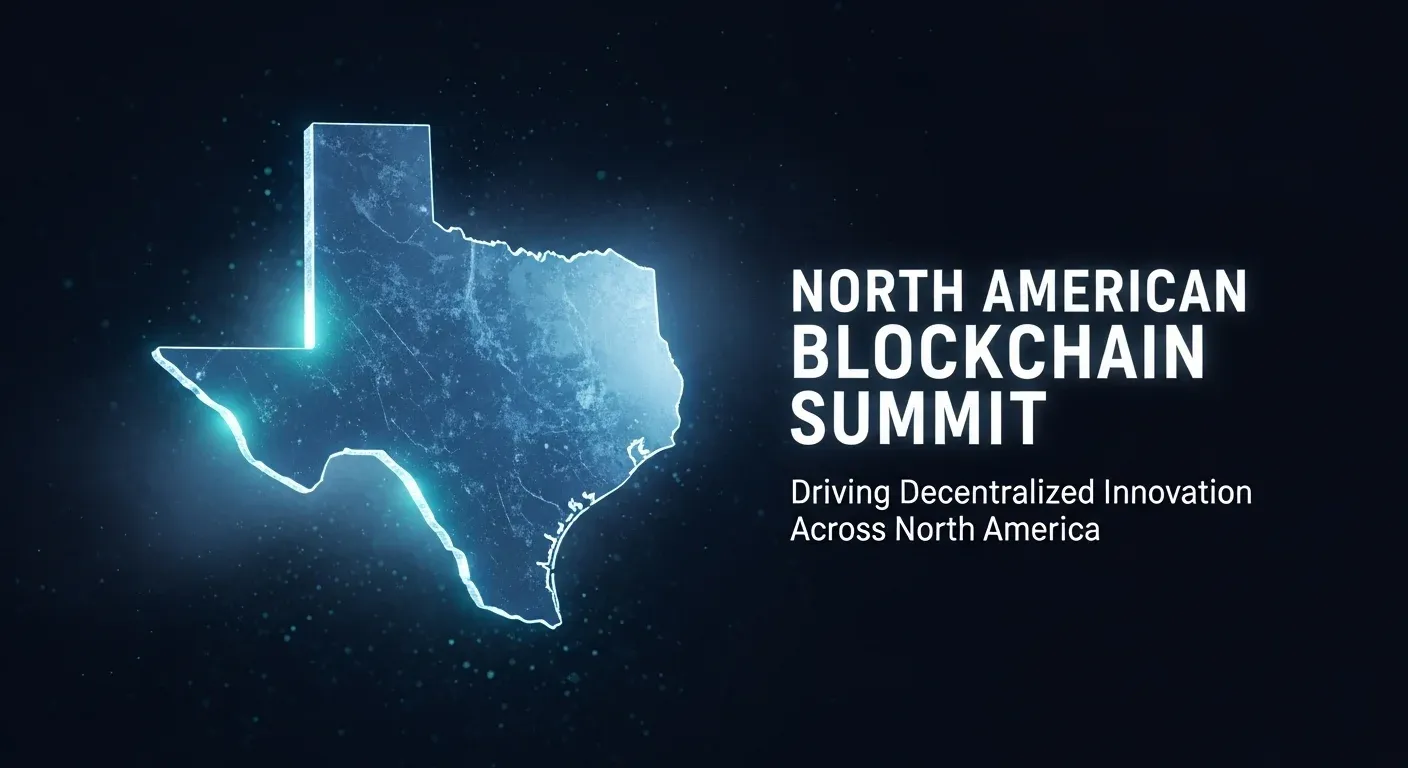

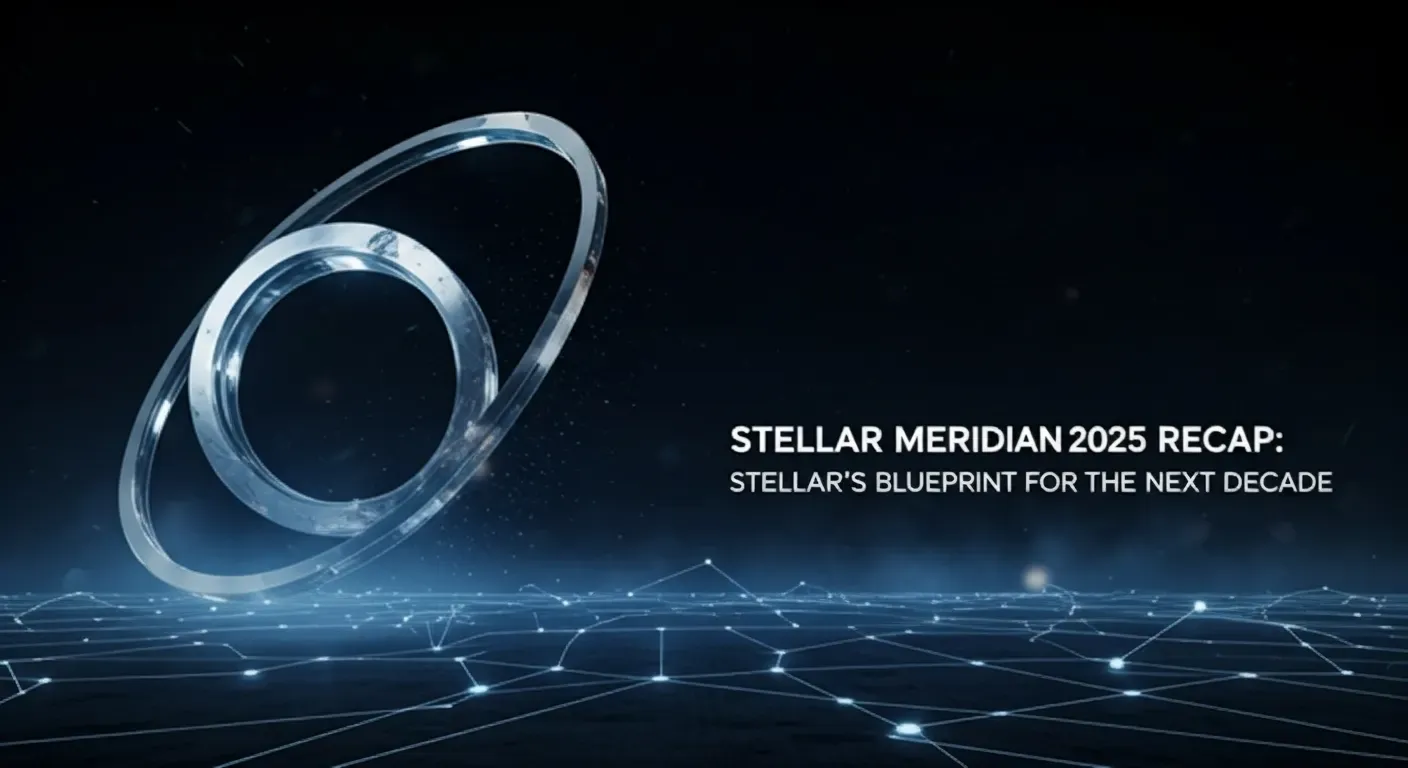

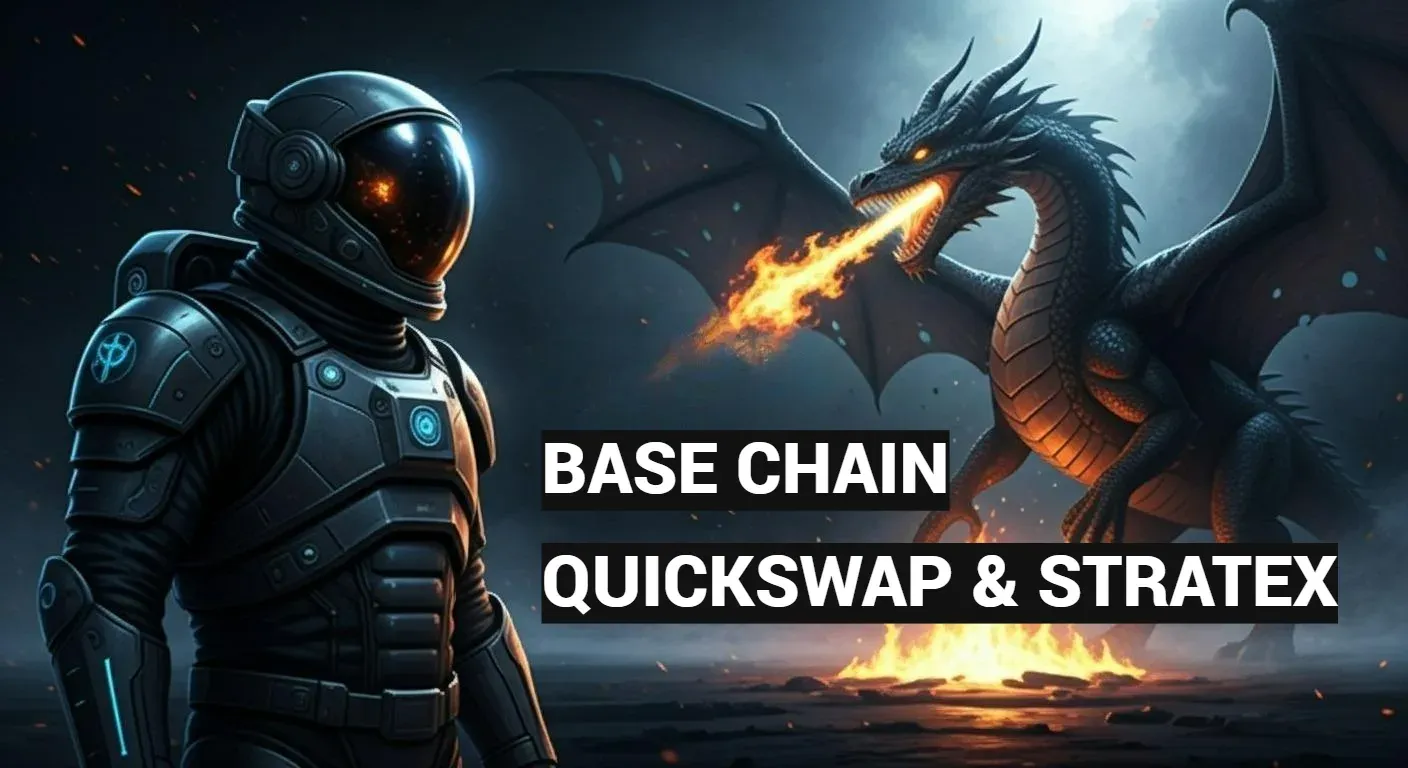
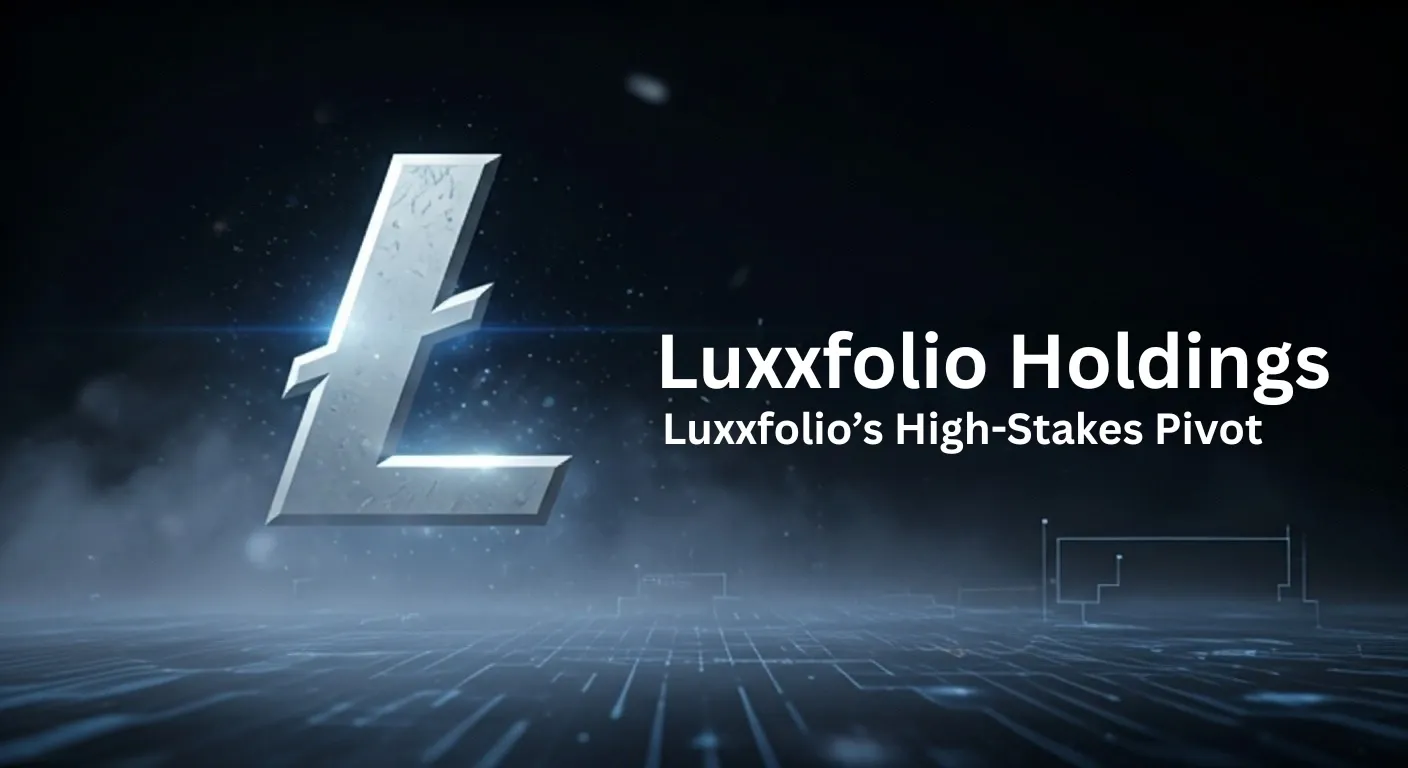
Discussion